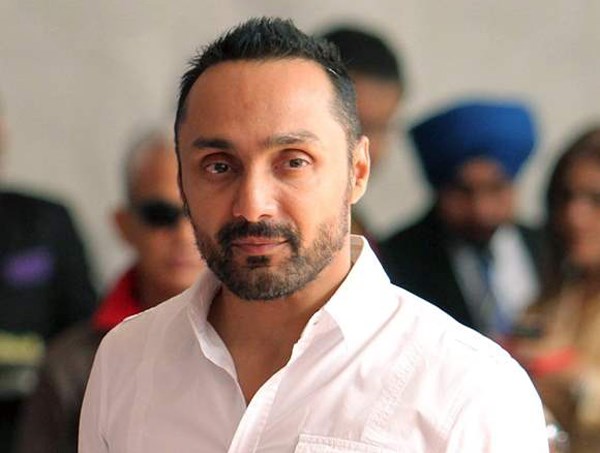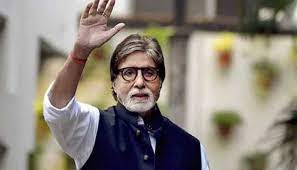“Very Bad Actors, Who Have Lots Of Charisma, Get Very Far,” Rahul Bose Says About Star Culture In Bollywood | EXCLUSIVE
Ishwak Singh, costarring with Rahul Bose in the espionage thriller Berlin that went on the festival circuit, praised him for his extensive expertise. He is correct, too.

Rahul Bose is one of the few Indian actors who has portrayed almost every kind of character, from a mushy, infatuated lover in Pyaar Ke Side Effects (2006) to a wealthy, emotionally devoid spouse in Dil Dhadakne Do (2015). And, of course, his 11-year career as a national rugby player.
The actor-director spoke extensively about art and artists, actors and their fears, and the main distinction between charismatic “very good actors” and “very bad actors” in a recent interview with Zoom.
Excerpts from our interview with the multifaceted performer have been edited:
Belin is now officially regarded as the festival’s darling. Regarding it, what are your thoughts? People are enthralled by it, particularly on YouTube.
RB: I’m not familiar with it. That’s all, I believe. People, in my opinion, like exaggerating. I thus believe that I should take all compliments and criticism with a grain of salt. Staying in the center is usually a good idea. Keep your feet on the ground and your head up.
I heard somewhere that you put on four kg for this movie. What was the purpose of all that? I’m also very interested in learning more about your character, so please do so.
RB: When you consider Sondhi, you realize that he is a very corrupt man whose corruption has reached his neck, which ought to indicate that he is a highly ethically ambiguous person. I want to convey the idea that corruption is a guy who is conceited, haughty, and corrupt. Therefore, I reasoned that adding fat and other features would look good if you had a little belly.
Might as well enjoy it on my own, I said. It was the worst choice I have ever made since even now, I am still carrying one kilogram from that loss. Three kilograms have dropped off of me. It has taken a very long time. To do it was such a mistake. You’ll see, however, that it would not have been true if he had been fit and slender. He doesn’t work out properly. You know, he’s simply a crooked agent.
You collaborated with Mr. Atul Sabharwal on this film as a director as well. As an actor, when you embark on a project, does the director in you step aside or do you contribute as well? How does one go about becoming creative?
RB: Almost seldom. I never get involved. I just decapitate my director and throw it into the Arabian Sea. You’ll lose your mind if not. The photos you’ll be considering will be completed by us. Everything will consume your thoughts.
All you need to do is remove the head and discard it into the ocean. After that, you give in. Give your director a kiss and hand him the wheel. Let them take care of it.
Everyone believes that twenty-four years ago, when I directed my first picture, I was OK. Subsequently, I have worked on 40 films overall, starring both veteran actress Aparna Sen and up-and-comer Sujoy Ghosh. I never said anything at all while he performed Jhankar Beats. I only speak when it seems fake, as when I ask that we read the scenario. “Yeh strange lag rahaan hai,” I might say. As we read the situation, it gradually becomes more balanced.
A few of words are omitted. Yes, but it’s more in the conversation and how the scenario is performed. That’s the right of an actor. Another issue is that I always see myself on film after a scene. But that’s really the domain of actors. I have never in my life requested a close-up as an actor or as a director. I have never requested to see the video help. Throughout the whole movie, I never go near the video assistant until the director tells me to come here and observe this. I’m not interested in seeing myself in any other case. I don’t suppose many other people are interested in this either, but I’m not.
You said in an interview that actors are inherently insecure. As an actor, do you have any insecurities? If so, how does Rahul Bose deal with such fears?
RB: I guess I’m just acting. No, acknowledging your fears is the best way to cope with them. You approach someone and apologize for not knowing how to conduct an interview. Would you kindly show me? Rather than just showing up here, sitting here, and acting like I know everything. Therefore, people are always willing to assist if you are simply honest and acknowledge your ignorance of certain topics. There will always be someone there to make fun of you.
You’ve immediately stated, “Ki mujhe yeh nahin aata hain,” therefore they will never put you down. It turns into a very, you know, when that individual isn’t required to carry a firearm, then they have to… It becomes very quiet.
Ishwak Singh and Aparshakti Khurana, two contemporary performers, are your co-stars, and I also had a question for you. What kind of atmosphere existed on the Berlin sets, and what insights did you get from them?
RB: Well, Atul informed me that Apar and Ishwak, the two actors, would be collaborating with me. They have amazing ability and attractive looks. “Okay, what do I have to do?” I then responded. “You have to hate them,” he replied. Done, I said. Anybody better attractive than me, more skilled. I must despise them. Thus, I imagined that I would bash their heads each and every day. under my foot. All I need to do is that, and it will happen rather naturally.
You cannot act alone, so no, but really. You cannot perform alone unless the scenario is a one-person play. It’s similar to playing tennis; if you’re playing with a truly awful player, your game will also suffer. Your tennis improves when you play with a better player. That’s how it is. Because Ishwak and Apar are talented performers, it was a lot of joy working with them. That’s why it’s always a lot of fun when there are talented performers. It’s agony whenever there are terrible actors.
I wanted to question you about this industry’s general superstar culture in Bollywood. Kangana Ranaut has said that she and Salman Khan represent the last generation of stars and that the rise of OTT has somewhat eroded their culture. Regarding it, what are your thoughts?
RB: (Giggles!) I’ll tell you what, then. What distinguishes a star? A celebrity is someone you are not. It doesn’t matter whether they behave good or poorly. All you want to do is see them.
It makes no difference to you whether they are portraying an industrialist or a peasant. All you want to do is see them. Whether they’re portraying an aeronautical scientist or a cricket player doesn’t matter to you. All they want to do is see them.
It doesn’t matter how they behave. You’re indifferent. All you want to do is see them. When an actor’s charisma gets to the point where you want to see them exclusively, feel as if you know them, and think you were connected in a past life, that’s when charisma happens. That’s the material. Everyone else is an actor with varying degrees of charm outside of that. You are aware that you cannot lack charm. Some really talented performers lack charm. They will not go very far. You know, there are some very charismatic but awful actors. They will succeed greatly because movies are visual media. It must be seen by you.
In light of this, it follows that stars will always exist since very captivating individuals will always exist. You know, whether Madhubala was involved or not—you know, today’s celebrities. In the film business, there will always be really charming people, and you cannot stop them from becoming huge stars. There will be stars; some larger than others, but stars nevertheless. Actors will also be present.







